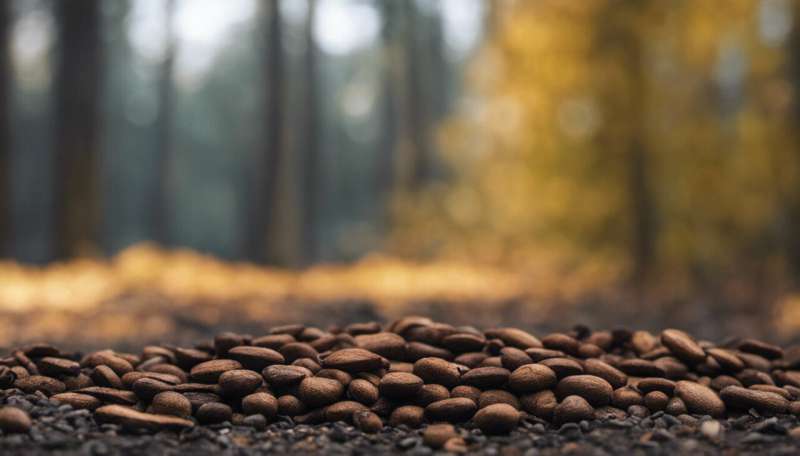Credit: AI-generated image (disclaimer)
The continued demand for food rich in protein and nutrition has highlighted the importance of fisheries and aquaculture. A report by the UN's Food and Agriculture Organization predicts that human population growth will drive an increase in fish consumption of about 1.2 percent per year over the next decade. Production of fish and fish products is estimated to reach over 200 million t by 2030.
However, the production process of ingredients for fish feed, including fishmeal and plant-based protein alternatives such as soybean, has significant implications for land and water use and greenhouse gas emissions. It contributes to climate change and biodiversity loss. With such challenges and rising concerns over food security, the use of sustainable sources of protein in animal feed, including fish feed, is becoming more appealing. Supported by the EU-funded SYLFEED project, researchers and industrial partners have completed scientific studies demonstrating the effectiveness of SylPro as an alternative protein ingredient for use in aquafeed.
Wood to food
In a press release, Dr. Ricardo Ekmay, Vice President of Nutrition for project coordinator Arbiom, says: "The results of these studies are a critical and promising step in validating the effectiveness of SylPro as we continue to scale-up Arbiom's Wood to Food platform and bring our first commercial product to the market."
The same press release explains the product's features: "SylPro is a yeast single-cell protein (SCP), that is produced using wood-derived media in fermentation and final downstream processing to achieve appropriate properties as a viable replacement for fish meal or plant protein concentrates." According to the press release, initial tests evaluating the material handling of SylPro have shown that "it performs well in a range of extrusion conditions at varying inclusion levels in extruded feed."
Another trial examined the nutritional performance of SylPro in hybrid striped bass using feeds incorporating the high-protein ingredient at various inclusion rates. "Growth (body weight), body composition, nutrient digestibility and general gastrointestinal health were evaluated over the course of a 60-day period. The study results showed no differences in mortality or feed intake across all diets." Overall, the study concludes that SylPro can be utilized as an alternative to fishmeal or plant-based proteins in hybrid striped bass diets to provide equivalent nutritional performance as conventional protein sources for up to 20 percent of inclusion levels.
The project partners hope that the high-protein feed ingredient "will be verified for use in salmon, tilapia, rainbow trout, hybrid striped bass, suckling-weanling pig, and companion animal feeds," as stated in a factsheet.
A key objective of the ongoing SYLFEED (From forest to feed: enable the wood industry to bridge the protein gap) project is to increase Europe's self-sufficiency in protein production. As noted on the project website, Europe imports 70 percent of proteins required for animal feed. "This figure has been stable over the past 40 years and signals a persistent and current European protein deficit." SYLFEED partners hope to upscale from pilot scale and validate the biorefinery process that converts lignocellulose—non-food biomass from wood—into SCP suitable for formulating fish feed.
More information: SYLFEED project website: sylfeed.eu/
Provided by CORDIS






















